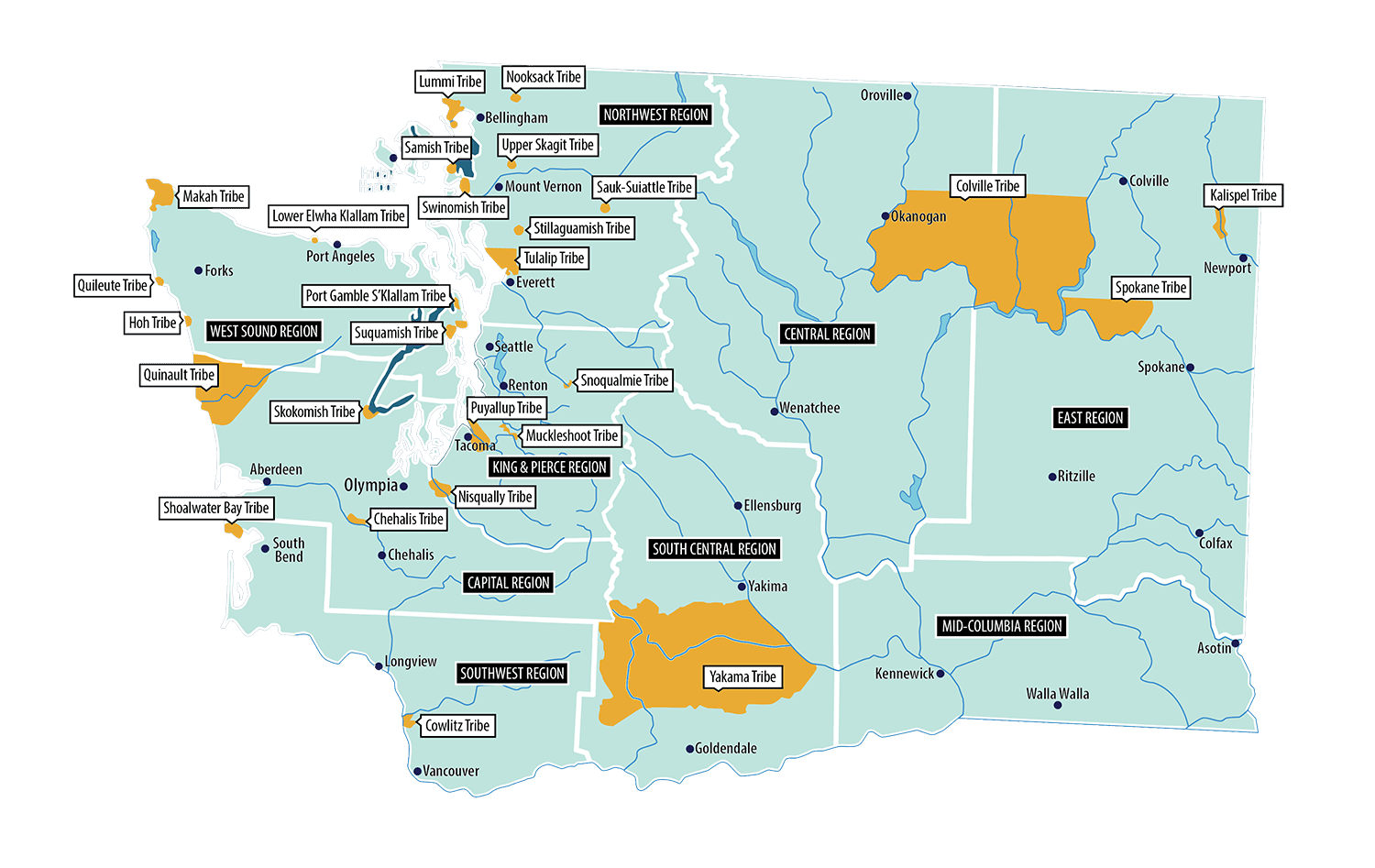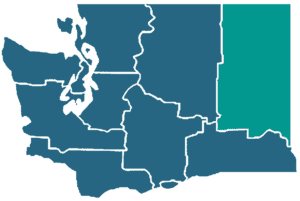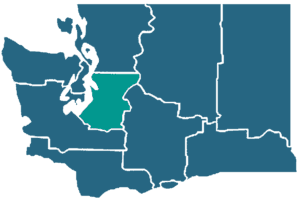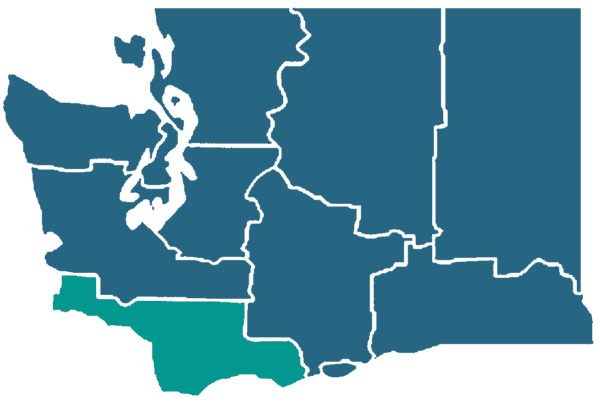Career Connect Washington (CCW) offers resources to support all young people in Washington state, including tribal students. There is funding available to support workforce development programs that are created by tribal schools, governments, and community organizations to invest in Native youth and young adults.

A student and instructor work outdoors in the Colville Tribe’s Summer Youth Employment program.
What is CCW?
Our vision is that every young adult in Washington will have multiple pathways toward economic self-sufficiency and fulfillment. CCW intentionally focuses on building opportunities for students of color, Indigenous students, low-income students, rural students, and students with disabilities.
We work to connect, fund, and support those creating high-quality education and work-based experiences for young people.
How we support workforce development
Washington state government uses the term “career connected learning” to describe a series of skill-based programs that combine learning in a classroom setting with work-based experiences that provide a pathway to further education or careers. These can include career and technical education (CTE) programs offered by Washington state educational service districts, Washington state tribal youth programs, and other workforce development programs developed by tribal nations and schools.

A student works at a fish hatchery in the Colville Tribe’s Summer Youth Employment program.

Title?
Washington state government uses the term “career connected learning” to describe a series of skill-based programs that combine learning in a classroom setting with work-based experiences that provide a pathway to further education or careers. These can include career and technical education (CTE) programs offered by Washington state educational service districts, Washington state tribal youth programs, and other workforce development programs developed by tribal nations and schools.
Access funding for workforce development programs
We honor and recognize the youth workforce development investments that tribes and nations have made and seek opportunities to strengthen them.
CCW Program Builder grant funding is available to support and scale tribal workforce development programs that serve Native youth and young adults. “Program Builder” is CCW’s term for people and organizations funded by the Washington state government to create career connected learning programs. Program Builder funds are available throughout the year. To receive information on when funding is available, sign up for our newsletter.
Who to connect with for more information
CCW has nine Regional Networks across Washington state that work closely with program builders, employers, labor, and other organizations in their area on career connected learning activities. We recommend contacting one of the Regional Network Directors or OSPI’s Office of Native Education, to begin a conversation.
Office of Native Education
Shandy Abrahamson (Sinixt, Spokane), Director of the Office of Native Education
Shandy.Abrahamson@k12.wa.us
CCW Regional Network Contacts
Support for Native students
Many people and organizations, like OSPI’s Office of Native Education, are working to meet the educational needs of American Indian and Alaskan Native (AI/AN) students. We invite you to explore resources developed by partners and peers to support Native families.










